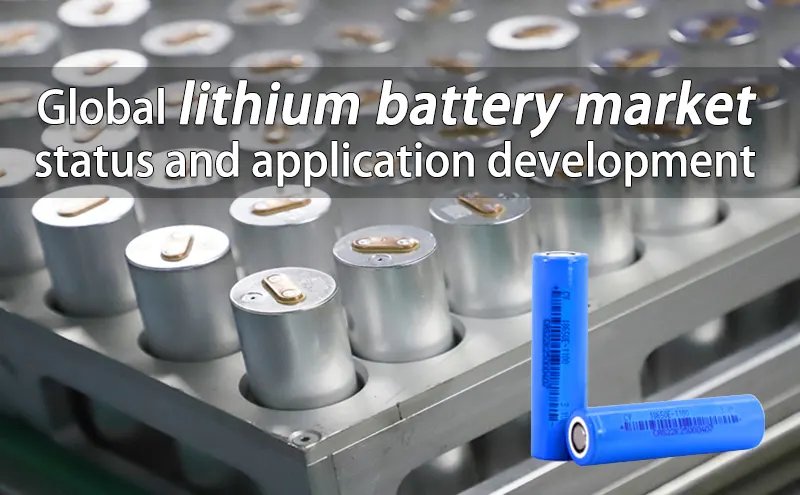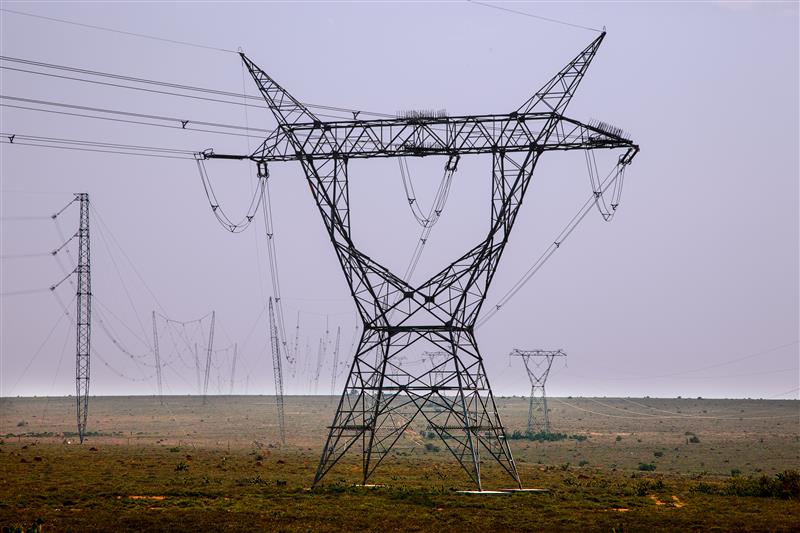Business
Zimbabwe’s Lithium Boom Defies Global Price Slump, Eyes Battery Hub Status

Zimbabwe has defied a global lithium price crash, reporting a 30% surge in spodumene concentrate exports in the first half of 2025.
According to the Minerals Marketing Corporation of Zimbabwe (MMCZ), the country exported 586,197 metric tons of spodumene, a sharp increase from 451,824 tons in the same period of 2024.
This growth comes despite a 90% plunge in global lithium prices—from over US$80,000 per ton in 2022 to just US$8,450 in June 2025—driven by a glut in supply.
Yet, Zimbabwe’s strategic positioning and forward-looking policies have insulated it from market volatility, offering a compelling narrative of resilience and ambition.
Chinese Investment Fuels Zimbabwe’s Lithium Expansion
Key to this growth is massive Chinese investment, totalling over US$1.4 billion since 2021, making Zimbabwe a focal point in the global electric vehicle (EV) supply chain. Major Chinese mining companies—including Huayou Cobalt, Sinomine, Chengxin, Yahua, and Tsingshan—have expanded their operations, bolstering Zimbabwe’s position as a top lithium exporter in Africa.
- Huayou Cobalt exported 400,000 tons of lithium concentrate from Zimbabwe in 2024 and is now constructing a 50,000 tpa lithium sulphate plant.
- Sinomine Resources Group plans a US$500 million beneficiation plant at Bikita, a move expected to boost local value addition.
Zimbabwe’s Lithium Beneficiation Push: A Game-Changer
Zimbabwe’s ban on raw lithium exports by 2027 is a cornerstone of its beneficiation strategy, designed to move the country up the battery value chain. By encouraging local processing of lithium into battery-grade materials, Zimbabwe aims to:
- Retain more economic value domestically
- Support the local job market
- Strengthen its role in the global EV manufacturing ecosystem
Learn more about the beneficiation process in mineral economics
Resilience Amid Lithium Price Crash
The contrast between global lithium price trends and Zimbabwe’s rising export volumes underscores the country’s strategic foresight. While lithium miners in other regions scale down operations, Zimbabwe’s policy consistency and investor partnerships provide a cushion against market fluctuations.
“This is not just a commodities story—it’s about long-term industrial strategy,” said an MMCZ spokesperson.
“Zimbabwe is positioning itself as a battery minerals hub, not just a supplier of raw ores.”
Challenges Ahead: Infrastructure and Energy Security
Despite the success, challenges remain. Zimbabwe must address:
- Power reliability for processing plants
- Transport infrastructure for heavy mineral logistics
- Regulatory clarity to maintain investor confidence
Still, the trajectory is promising. As global demand for EVs continues to rise, Zimbabwe’s policies align with the need for diversified, stable sources of battery minerals.
Stay updated on electric vehicle adoption and mineral demand trends
Africa’s Lithium Powerhouse Looks to the Future
Zimbabwe’s lithium boom is more than a resource story—it is a strategic pivot toward sustainable industrialisation. With beneficiation plants under construction and exports rising despite global headwinds, Zimbabwe is on track to become a continental leader in battery-grade lithium production.
As the world races toward net-zero emissions and clean energy technologies, Zimbabwe may well emerge as a critical node in the EV supply chain, redefining its role in the global economy.
Explore how Zimbabwe is building a green future from its mineral wealth.
Business
Zimbabwe Bets Big on Biotech to Fuel Industrial Revolution


Dr. Eng. Willie Ganda
By Enia Dube
The Minister of Higher and Tertiary Education, Innovation, Science and Technology Development, Hon. Dr Fredrick Shava, has thrown his weight behind biotechnology as a key driver of the country’s industrialisation and modernisation agenda.
Speaking at the National Biotechnology Authority (NBA) Strategic Planning Workshop in Kadoma, Dr Shava urged the Authority to identify biotechnology-led opportunities that can boost national production and accelerate economic growth.
“Biotechnology serves as a key catalyst for NDS2 implementation, advancing inclusive economic growth, job creation, and sustainable industrial development,” Dr Shava said, emphasising the need to integrate biotechnology into national value chains to unlock a biotechnology-driven economy. He added that this would turn innovation into industry, knowledge into enterprise, and science into jobs.
The NBA has made notable progress in establishing a strong regulatory framework, promoting biotechnology research and commercialisation, and raising public awareness about the sector’s potential. The Authority has successfully commercialised products such as Mapfura wine and Cofsol cough syrup, and has several other biotechnology products in the pipeline.
Incoming NBA Board Chairperson, Professor Idah Sithole-Niang, echoed Dr Shava’s sentiments, emphasising that the Authority’s five-year strategic plan must meaningfully contribute to the attainment of Vision 2030. “This event marks a significant milestone in the Authority’s ongoing efforts to enhance the role of biotechnology in Zimbabwe’s socio-economic development,” she said.
The workshop aimed to realign priorities and resources in response to emerging technologies and global biotechnology trends, and develop a strategic roadmap to strengthen biotechnology as a key driver of Zimbabwe’s socio-economic transformation. The rapidly evolving global biotechnology landscape, including advancements in gene editing, bio-manufacturing, and climate-smart innovations, presents both new opportunities and challenges for Zimbabwe.
“We recognise the pressing need for an inclusive and forward-looking strategic plan that can navigate the complexities of the biotechnology landscape,” Professor Sithole-Niang noted. The workshop was attended by researchers, government officials, and NBA staff, who are optimistic about the potential of biotechnology to drive Zimbabwe’s economic transformation and achieve Vision 2030.
Business
GAS COMPANY, DIRECTOR IN COURT OVER ALLEGED TAX VIOLATIONS

A Harare-based liquefied petroleum gas retailer, Prompt Gas, and its director, Gift Patsika, have appeared in court on allegations of breaching tax and exchange control regulations involving more than R8 million.
The pair appeared before regional magistrate Marewanazvo Gofa on Wednesday.
According to prosecutors, detectives from the CID Asset Forfeiture Unit were deployed on Monday under an operation code-named “Pressure Valve,” which focused on inspecting fuel and LPG businesses for compliance in areas such as licensing, pricing, funding sources and banking transactions.
Investigators visited Prompt Gas premises at 1170A3 Mutare Road, where initial checks indicated that the company had imported gas from Mozambican supplier IPG between January 1 and November 18 this year at a cost of R8,006,055.75.
The State alleges that Patsika failed to furnish proof that the imports were processed through formal banking channels as required. Authorities further claim the company made offshore payments without Reserve Bank of Zimbabwe approval, in violation of exchange control regulations.
The court also heard that the origins of the funds used for the purchases could not be accounted for, raising possible money laundering concerns.
The matter is expected to continue as investigations proceed.
Business
Zimbabwe Slashes Energy Costs in Bid to Boost Economy


The Zimbabwean government has taken a significant step towards reducing business costs and attracting investment by slashing a range of licenses, levies, and fees in the energy sector. This move is part of a broader effort to modernize regulation and make the country a more competitive destination for capital.
The reforms are a direct response to the need to reduce the cost of doing business and accelerate growth in key energy subsectors, said Information Minister Dr. Jenfan Muswere, announcing the measures after Tuesday’s Cabinet meeting. The review followed extensive consultations with ministries, government agencies, and energy sector players, and forms part of the broader reform package approved by Cabinet in July last year.
The Zimbabwe Energy Regulatory Authority licence application fee has been reduced from US$2,500 to US$2,000, while the solar generation licence fee of US$2,875 has been completely removed. The petroleum import procurement license has been cut by half from US$30,000. In rural areas, the fuel retailing license has been reduced from US$200 to US$150, and the LPG retail license fee is being reduced by 50% from the current US$230.
The government recognizes that energy investment had been largely carried by the state, a position that had become unsustainable due to limited fiscal space. The new fee structure is intended to open the sector to more private investors by lowering barriers and eliminating outdated charges. “Government continues to prioritise reforms that improve the ease of doing business in order to attract and retain investment,” Dr. Muswere said.
The announcement adds to a growing list of business reforms underway across multiple sectors, including sweeping license consolidations and fee cuts in retail, hospitality, and financial services. These broader measures have included merging fragmented shop licenses, eliminating redundant permits, capping SME license fees at US$500, and cutting hotel license fees by 50%. Additional refinements to the new energy fee schedule will be finalised before gazetting once ministries complete the necessary legislative and administrative adjustments.
-

 Current Affairs1 week ago
Current Affairs1 week agoOperation restore order
-

 Crime and Courts2 months ago
Crime and Courts2 months agoMasasi High School Abuse Scandal Sparks Public Outcry
-

 Crime and Courts2 months ago
Crime and Courts2 months agoKuwadzana Man Jailed for Reckless Driving and Driving Without a Licence
-

 Current Affairs3 months ago
Current Affairs3 months agoMunhumutapa Day: Zimbabwe’s Newest Public Holiday Set for Annual Observance
-

 Current Affairs4 months ago
Current Affairs4 months agoBreaking: ZIMSEC June 2025 Exam Results Now Available Online
-

 Current Affairs1 month ago
Current Affairs1 month agoBREAKING NEWS: ZANU PF Director General Ezekiel Zabanyana Fired
-

 Current Affairs3 months ago
Current Affairs3 months agoGovernment Bans Tinted Car Windows in Nationwide Crime Crackdown
-

 Current Affairs2 months ago
Current Affairs2 months agoExposed: Harare GynecologistChirume Accused of Negligence, Extortion, and Abuse



